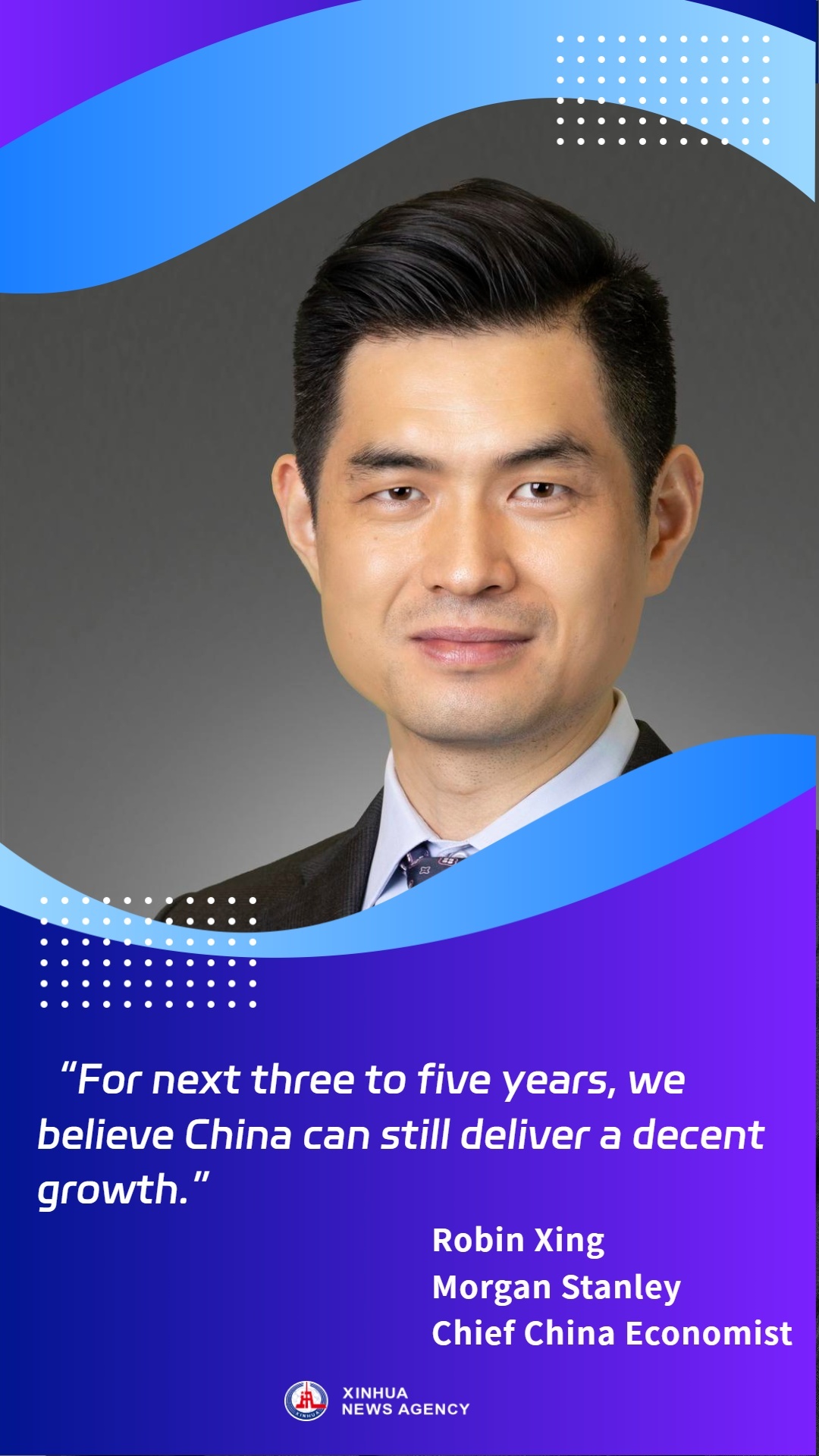
by Xinhua writers Wang Siyuan and Zhou Qianxian
BEIJING, Dec. 28 (Xinhua) -- China has made remarkable progress in its economic recovery, says Morgan Stanley Chief China Economist Robin Xing, adding that although there are still challenges, he is optimistic about the country's economic growth prospects.
"There is not much question that China can achieve its 5-percent government target for this year," Xing said in an exclusive interview with Xinhua.
The low base from last year when China was battling the COVID-19 definitely helped, he added, and the country's export and manufacturing growth has also been resilient this year.
Concerning China's deflation risks, Xing stated that the country's tepid consumer price index, a main gauge of inflation, is due in part to the hog price cycle and oversupply brought by the legacy issues in the last two to three years.
"If you exclude food and oil and just look at the core goods, the price level is growing," he said, adding that China is trying to address these potential deflation risks with more policy support.
Xing believes China can overcome the middle income trap and achieve its long-term goal of becoming a high-income economy in 2035.
China's growth potential is high, Xing remarked, citing the fact that China's per capita GDP only registered over 12,000 U.S. dollars in 2022, or around 17 percent of that in the United States.
"For the next three to five years, we believe China can still deliver a decent growth," he said.
Xing praised Chinese professionals in numerous areas for their awareness of innovation and services, saying that effective policies are needed to support Chinese entrepreneurs and residents' industriousness, courage and pursuit of a better life.
"There is definitely a lot of policy firepower if China's policymakers want to boost the economy," said Xing, adding that the Chinese central government's balance sheet is probably one of the healthiest among major economies.
During the annual Central Economic Work Conference held earlier this month, China committed efforts next year to pursue progress while ensuring stability, consolidate stability through progress, and build the new before destroying the old, which Xing perceives as "a very practical philosophy."
The meeting also noted that steps should be taken to improve the consistency of macroeconomic policy orientation and coordination on fiscal, monetary, employment, industrial, regional, sci-tech and environmental policies, as well as to include non-economic policies in the assessment of macroeconomic policy consistency to ensure that the policies create synergy.
Xing believes that the arrangement has sent positive signals to foreign firms and investors. "That's a new line, and that's very important. Once it's really getting delivered, I do think it could help gradually bring back confidence."




 A single purchase
A single purchase









